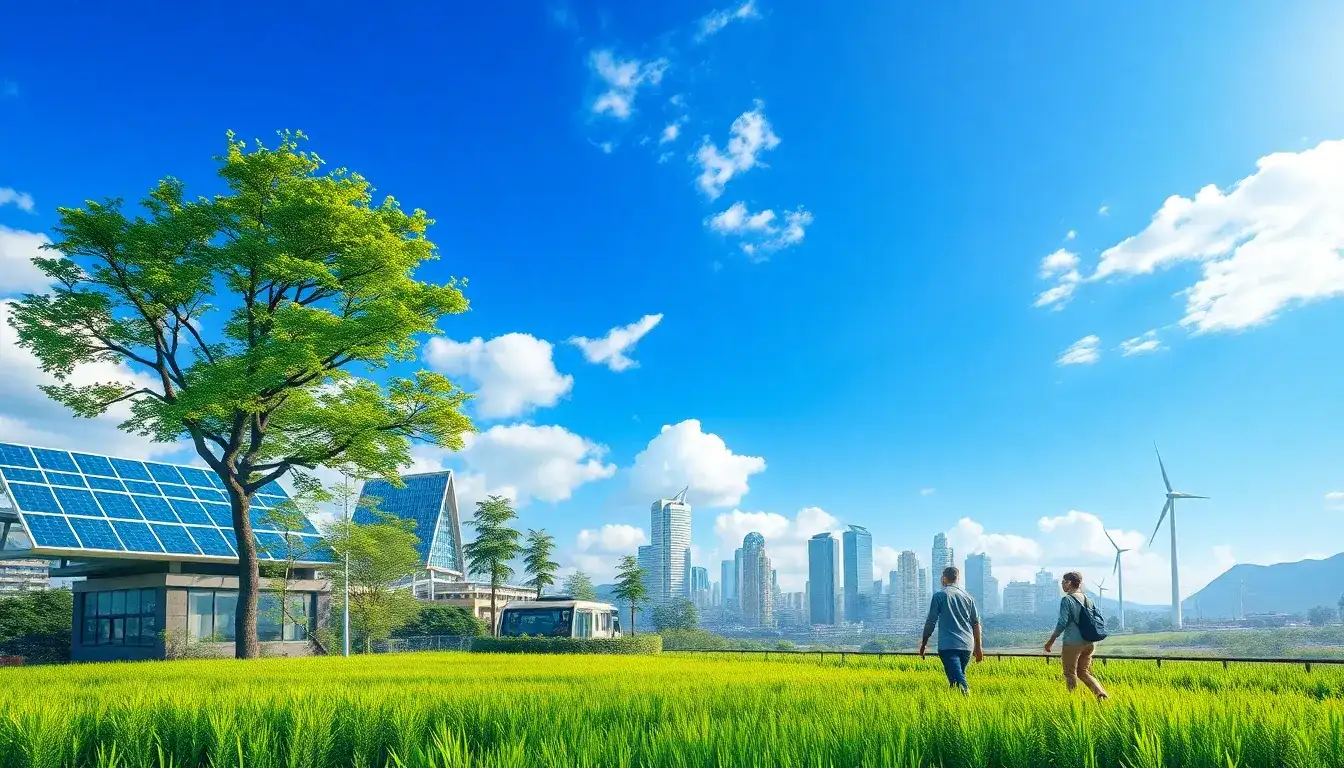
This year, green, low-carbon, and energy transition remain hot topics at the Boao Forum for Asia Annual Conference. The event features multiple sub-forums discussing global climate governance, the construction of new energy systems, and the shared development of green power, contributing “Boao wisdom” to sustainable development in Asia and beyond.
Experts attending the forum emphasized that issues like climate change remain urgent, and green development has become an essential path for Asian countries to achieve sustainability. All parties must collaborate to elevate green development to a more prominent position.
The progress of global energy transition is irreversible. Liu Zhenmin, China’s Special Envoy for Climate Change Affairs, stated that the global energy transition is driven by the political will, market forces, and technology of member countries, and no nation can halt it. Currently, the vigorous development of clean energy and the promotion of a green low-carbon transition in society have become a consensus among the international community in addressing global climate change and accelerating the achievement of sustainable development goals.
The 2025 Annual Report on Sustainable Development in Asia and the World—Addressing Climate Change: Asia’s Green Development, released on March 25 during the conference, highlights that to successfully transition to a low-carbon and nature-friendly economy, there is a need to further integrate carbon markets, nature-based solutions, and green technologies. Countries should also seize the win-win opportunities presented by sustainable transformation to create green jobs, reduce health costs associated with air and water pollution, and improve the efficiency of energy and natural resource use.
According to Zhu Min, Vice Chairman of the China Center for International Economic Exchanges and former Vice President of the International Monetary Fund, carbon neutrality has emerged as a new growth model or engine globally. For instance, solar power generated from solar panels produced in China has a cost that is only 50% of that of coal. Additionally, solar power plants established by Chinese companies in Saudi Arabia have reached a generation cost of just 1 cent per kilowatt-hour. “From this perspective, carbon neutrality technology is the hope for humanity’s future growth,” Zhu stated.
Patricio Contesse, Vice Chairman of the Board of Chile’s Mining and Chemical Company, echoed the view that carbon neutrality harbors opportunities. He noted that over the past five years, thanks to new energy technology, the company’s output has increased fourfold, enabling the production of more lithium resources with higher benefits while consuming fewer resources.
Building an Asian energy internet is key. Xin Baoan, Chairman of the Global Energy Interconnection Development and Cooperation Organization and Chairman of the China Electric Power Union, observed that Asia’s economic growth is robust, with energy demand soaring, as electricity consumption has grown at an annual average rate of 5% over the past decade, significantly higher than the global average of 2.4%. He pointed out that Asia’s energy development faces three major challenges: electricity supply, low-carbon development, and inclusive growth. Fully developing and utilizing clean energy and building an Asian energy internet are crucial for achieving energy transition and sustainable development in the region.
Qian Zhaoyang, Director and General Manager of China Southern Power Grid Co., Ltd., also highlighted the enormous potential for complementary green energy combinations in Asia. However, he stressed the need for countries to collaboratively build a new energy system. He advocated for enhanced coordination of international energy and electricity strategic mechanisms, increased efforts in building interconnected power grids, and strengthened international energy ecological cooperation to expedite the construction of new power systems and energy frameworks.
Song Hailiang, Chairman of China Energy Engineering Group, asserted that building a new energy system requires efforts on “five fronts”: on the supply side, the new energy system must be diverse and green; on the consumption side, there should be green alternatives and transformations; on the innovation side, collaboration between industry, academia, and research should be promoted to drive technological advancements; on the planning side, regional and industry coordination should achieve supply-demand balance; and on the policy side, regulatory bodies should provide positive incentives and evaluation mechanisms for green transitions and new energy, along with constraints.
The establishment of a new energy system relies on the support of the industrial chain. Currently, China has built the largest and most complete new energy industrial chain in the world. Zhang Chuanwei, Founder and Chairman of Mingyang Smart Energy Group, noted that China’s industrial and manufacturing chains are facilitating industrial collaboration in Asia and Europe, providing strong support for the region’s green power energy transition.
During the conference, several experts discussed how China has been actively promoting the development of renewable and clean energy technologies in recent years, positively influencing global green development. From green-powered coffee machines and pedal-operated carbon reduction experience platforms to flower-shaped wind turbines and photovoltaic floor tiles outside the news center, zero-carbon scenarios and carbon reduction technologies were prominently featured at the Boao Dongyu Island venue, integrating the concept of green development into tangible experiences.
It is reported that in recent years, Boao has focused on establishing a zero-carbon demonstration area on Dongyu Island. By 2024, this area is expected to achieve a 96.2% carbon reduction, becoming China’s first region to realize nearly zero carbon emissions and a benchmark case for near-zero carbon development in tropical areas globally.
According to Bai Lefu, Chief Economist of the Asian Infrastructure Investment Bank, China’s achievements in promoting green transitions are remarkable, and its experiences in green development provide valuable lessons for other developing countries. Helena McLeod, Deputy Secretary-General of the Global Green Growth Institute, indicated that with support from policies, capital investment, and an innovative ecosystem, China has taken the lead in sectors like electric vehicles, energy storage, and renewable energy, helping Asia become a global pioneer in green technology research and development.







